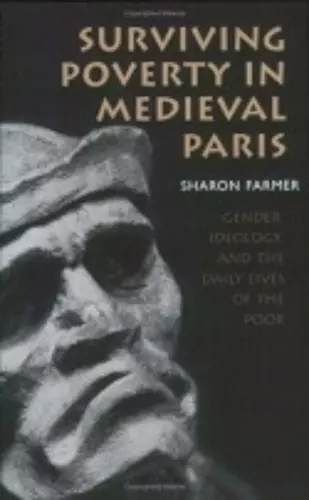Surviving Poverty in Medieval Paris
Gender, Ideology, and the Daily Lives of the Poor
Format:Paperback
Publisher:Cornell University Press
Published:12th Dec '05
Currently unavailable, and unfortunately no date known when it will be back
This paperback is available in another edition too:
- Hardback£50.00(9780801438363)

This book about poor men and women in thirteenth- and early fourteenth-century Paris reveals the other side of the "age of cathedrals" in the very place where gothic architecture and scholastic theology were born. In Surviving Poverty in Medieval Paris, Sharon Farmer extends and deepens the understanding of urban poverty in the High Middle Ages. She explores the ways in which cultural elites thought about the poor, and shows that their conceptions of poor men and women derived from the roles assigned to men and women in the opening chapters of the Book of Genesis—men are associated with productive labor, or labor within the public realm, and women with reproductive labor, or labor within the private realm.
Farmer proceeds to complicate this picture, showing that elite society's attitude toward an individual's social role and moral capacity depended not only on gender but also on the person's social status. Such perceptions in turn influenced the kinds of care extended or denied to the poor by charitable organizations and the informal self-help networks that arose among the poor themselves. Of particular interest are Farmer's discussions of society's responses to men and women who were disabled to the point of being incapable of any work at all.
We are starting to see several excellent histories of gender written by authors informed by feminist theories attuned to class, age, and marital status as important categories of difference—categories that only complicate and enrich our vision of past societies. Sharon Farmer's latest work on the lives of the poor in the thirteenth-and fourteenth century Paris is a prime example of this historiographical shift, and the author's approach, method, and insights will prove significant to early modern historians interested in social and gender history.
-- Christopher R. Corley, Minnesota State University * Sixteenth Century JournISBN: 9780801472695
Dimensions: 235mm x 155mm x 14mm
Weight: 454g
224 pages